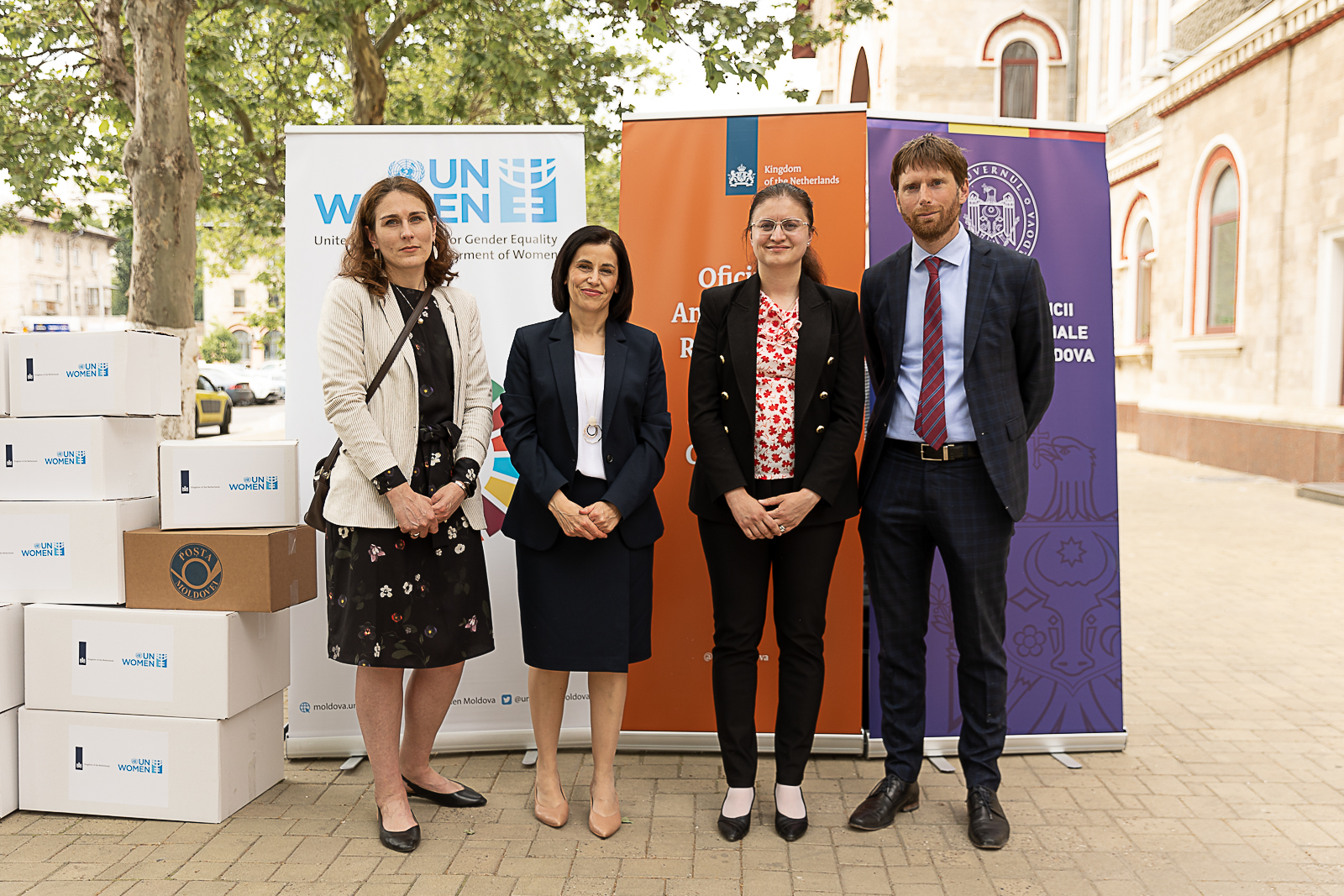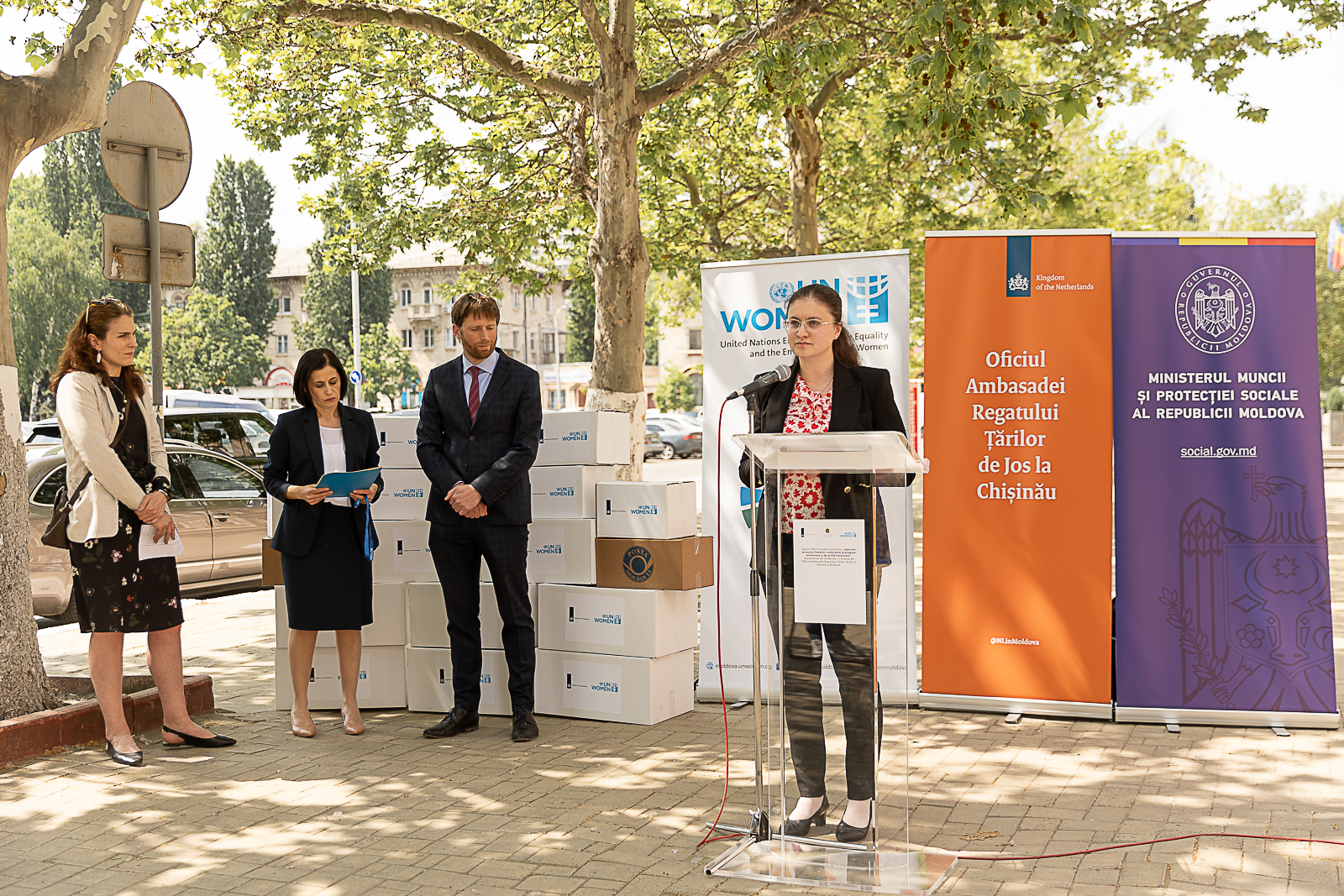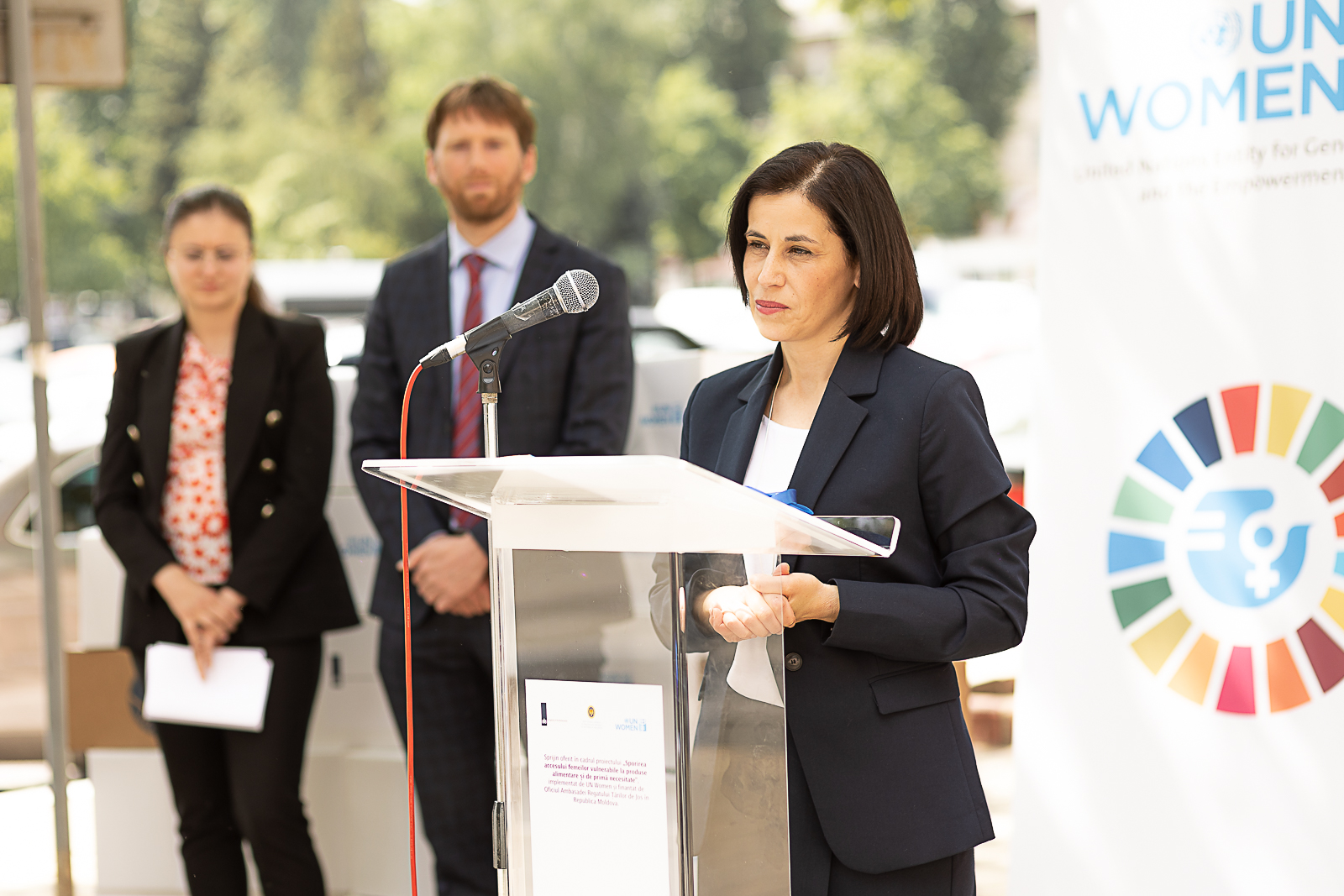Over 3850 women from vulnerable groups will receive food and essential supplies
Date:
As a part of continuous efforts for contributing to improving resilience of the most vulnerable groups against multiple crises, especially against the COVID-19 pandemic and its aftermaths, UN Women initiated, at the end of 2021, the „Increasing the access of vulnerable women to food and essential supplies” project, in collaboration with the Ministry of Labour and Social Protection, financed by the Embassy Office of the Kingdom of the Netherlands in the Republic of Moldova.
The project targets women from rural areas, underrepresented women, especially women with disabilities, Roma women, women affected by violence, single mothers, women with low or no incomes, women living with HIV, sex workers, as well as their dependents. The aim of the project is to support the above-mentioned groups with essential supplies, contributing to improving resilience against economic aftermaths of multiple crises.

Thus, over 3850 women across the country and their dependents will receive packages with food and hygienic products. More than 38,000 food packages, 44,000 hygienic and protection products will be offered within the project. Also, more than 15 centers, organisations providing services to women affected by violence, will receive protection packages. The support will be provided based on needs collected from 40 civil society organisations, with support from the National Coalition “Life Without Domestic Violence” and Gender Equality Platform.
„Even though today, fortunately, the number of COVID-19 infections is reduced, the socio-economic impact of the pandemic is still felt. Crises affect women and men differently. For this reason, this project is focusing on addressing needs of women from vulnerable groups who were affected by the crisis disproportionately.” Floris Van Eijk, Chargé d'Affaires a.i., the Embassy Office of the Kingdom of the Netherlands in the Republic of Moldova, mentioned during the press conference organised under the project.
Felicia Bechtoldt, the State Secretary of the Ministry of Labour and Social Protection, declared that: „We noticed that the crisis affected women and men differently at the very beginning of the pandemic. In this regard, the Ministry of Labour and Social Protection strengthened its efforts together with development partners and civil society, to ensure the mitigation of the negative impact of the crisis on the population, with a strong focus on the most vulnerable groups.”

„This project was initiated to support women from vulnerable groups during the pandemic but will continue to help them overcome multiple crises they face. I would like to thank the Government and our development partners for getting involved and civil society organisations for helping us identify the needs of vulnerable women from Moldova. I hope through these essential supplies we will bring a bit of happiness in the homes of those who really need this.” Dominika Stojanoska, UN Women Moldova country representative, stated.

„As a non-governmental organisation that interacts with people from vulnerable groups on a daily basis, we warmly welcome the flexibility of our development partners who addressed promptly and efficiently all the needs we have identified. These packages with food and hygienic products will give a ray of hope to our beneficiaries, allowing them to exclude a stringent problem, so that they can benefit from rehabilitation services, living in dignity.” Andriana Zaslavet, Programme Coordinator, RCTV Memoria, member of the National Coalition „Life Without Domestic Violence”, the president of Gender Equality Platform, mentioned.
Food, hygienic and essential products will be delivered to the beneficiaries during May and June, being distributed among over 20 districts across the country, on both banks of Nistru river. The „Increasing the access of vulnerable women to food and other essential supplies” project is implemented by UN Women Moldova, in collaboration with the Ministry of Labour and Social Protection and civil society organisations, being financed by the Embassy Office of the Kingdom of the Netherlands in the Republic of Moldova.